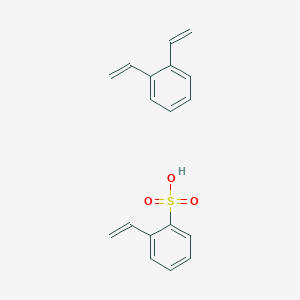Megestat capsule, a rare drug, was "conditionally approved" by CDE
-
Last Update: 2020-04-03
-
Source: Internet
-
Author: User
Search more information of high quality chemicals, good prices and reliable suppliers, visit
www.echemi.com
It was learned from the second Beijing rare diseases academic conference that megestat capsule, a rare disease drug, has obtained the qualification of "conditional approval" from the drug evaluation center in China, and the clinical trial of the drug is expected to be completed within 3 years Clinical experts believe that if megestat capsule can be successfully marketed, it will provide the first effective treatment drug for the patients with rare disease C-type Niemann peak disease in China According to Professor Ding Jie, chairman of the rare diseases branch of Beijing Medical Association, vice president of the first hospital of Peking University and vice director of Pediatrics, the C-type niemapeake disease originates from the genetic defects of lysosomal proteins involved in intracellular lipid transporters The main onset period is late infant and adolescence, with the symptoms of the nervous system as the main manifestation, including vertical supranuclear gaze paralysis , cerebellar ataxia, dysphonia and other symptoms In recent years, the number of such children in China has increased rapidly, and their symptoms have deteriorated rapidly, most of them died at the age of 10-25 For a long time, there is no effective treatment for C-type Niemann peak disease in China, mainly symptomatic treatment and supportive treatment Therefore, once the disease is found in China, the survival period of the children is at most 5 years, compared with Europe and America, the survival period is more than 5-8 years According to the drug review report of the drug review center, until the end of 2013, based on the existing research data of the drug, such as further small-scale clinical research after marketing, and the establishment of a systematic diagnosis and registration system, not only can help to systematically observe the safety and effectiveness of children, increase the access of patients to treatment, but also help to promote the epidemiology of the disease in China Data collection and unified diagnostic criteria Therefore, when the risk can be controlled, megestat capsule is "conditionally approved for listing" in China With the increase of the types of rare diseases, countries have increased investment in the research and development of drugs for rare diseases According to some data, in 2013, the National Institutes of Health (NIH) reduced the R & D cost compared with 2012, but the R & D investment in rare disease drugs did not drop significantly In all R & D varieties, rare disease drugs accounted for more than 60% Professor Ding Jinxi, vice president of international medicine business school of China Pharmaceutical University, said that since the United States became the first country in the world to implement the rare disease drug act in 1983, by June 2012, the FDA had certified 2641 "indications" to obtain rare disease drug status, of which 403 "indications" had been approved for listing In 2013, one third (9 out of 27) of the new molecular entities (NMES) approved in the United States were approved for treatment of rare diseases, which affected no more than 200000 Americans In recent years, due to the improvement of EU special registration system, the market of rare disease drugs has been booming As of June 2012, official data showed that 824 "indication drugs" had been identified, second only to the United States, of which 68 "indication drugs" had been approved for marketing After the implementation of the new drug registration system in Japan, the time for the registration and approval of drugs with rare diseases is nearly one year faster than that before the normal implementation, and nearly two years faster than that of drugs with non rare diseases As of March 2012, Japan's drug regulatory agencies have identified 269 "indication drugs" as rare disease drugs, of which 173 "indication drugs" have been listed Although China, like Europe and the United States and other countries, has opened a "fast track" for the approval of drugs for rare diseases, the enthusiasm of enterprise research and development is not high So far, the number of rare drugs on the market in China is 130 In addition to the small number of drugs for rare diseases, our country is in short supply for the high cost of medical insurance Recently, Japan's Ministry of health, labor and welfare approved the use of natural betaine bulk powder from Machida Research Institute for the treatment of the rare disease homocystinuria This is the first drug approved in Japan to treat the disease At present, betaine is only used as health care products in China, for fat metabolism and prevention of fatty liver Homocystinuria first appeared in the literature in 1962 It is a recessive disorder of amino acid metabolism It is mainly due to the lack of function of cystathionine synthetase, resulting in dysfunction in the process of synthesis of cystine by homocysteine, and accumulation of abnormal metabolites such as methionine, homocysteine, homocysteine and complex disulfide compounds in the body It is a recessive disorder of amino acid metabolism If both parents are recessive, the chance of the disease is 25%, and there is no gender difference The incidence of the disease in white people in Europe and America is about one in 200000 At present, there is no epidemiological investigation report on the disease in mainland China The incidence in Taiwan is very low Since 1984, 4.4 million newborns have been screened and 4 children diagnosed with homocystinuria have been screened However, in recent years, it has been found that the incidence of homocystinuria in Taiwan aborigines is high For the registration and application of rare disease drugs, there are many references in the application materials of this product published by the Ministry of health, labor and welfare of Japan, especially in the clinical research part: for example, the clinical research of this drug in Japan only includes the information of six subjects, and other clinical materials draw on the data of Europe, the United States and references The FDA's rare disease drug development office has launched a rare disease topic resource website for patients and the pharmaceutical industry The Department, together with the FDA's drug research and evaluation center, has established an educational resource on this rare disease topic Gayatri R Rao, director of the office of rare disease drug development, said: "many research projects funded by the FDA are indispensable for the approval of some rare disease drugs and medical devices Last year, the FDA funded a total of $14 million for 15 rare drug programs, all to support clinical research " "Now we are more focused on providing a more comprehensive view of development," Rao said In order for the device to enter the market, engineers, scientists, doctors, business people and regulators need to work together to succeed " Last year, the FDA approved 33 drugs for rare diseases Since 1983, the agency has approved more than 450 drugs and biotechnology products for the treatment of rare diseases Rao also disclosed that according to the quantity index required by the FDA's rare disease drug certification program, the FDA set a record year in 2013, an increase of 18% compared with 2012 A total of about 450 rare disease drug identification requests were received; 258 promising rare disease drugs were identified, an increase of 40% over the previous year (Xu Guanyu)
This article is an English version of an article which is originally in the Chinese language on echemi.com and is provided for information purposes only.
This website makes no representation or warranty of any kind, either expressed or implied, as to the accuracy, completeness ownership or reliability of
the article or any translations thereof. If you have any concerns or complaints relating to the article, please send an email, providing a detailed
description of the concern or complaint, to
service@echemi.com. A staff member will contact you within 5 working days. Once verified, infringing content
will be removed immediately.







